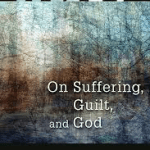The Way We Were
I’m not saying here that “the way we were” was perfect or even all good. We, conservative evangelical Christians of the 1950s and 1960s, were, like everyone else, a mixture of good and bad. I’m talking here, now, about our way of life then. I’m afraid we American evangelicals have largely lost our way. Is our new way better than the way we were? I’m not sure; I actually doubt it. We have largely succumbed to the world, allowed it to press us into its own mold, contrary to Romans 12:2 (Phillips paraphrase). We do largely conform to this world (secular and pagan society around us), contrary to 2 Corinthians 6:17 that calls Christians to come out from among “them” (secular and pagan people) and be separate.
I can, of course, already “hear” the objections. Don’t assume that I am endorsing a physical separation of Christians from “the world.” (Although I don’t disrespect those who do that!) But during the 1950s and 1960s most American evangelicals eschewed “worldliness”—imitation of secular and pagan lifestyles and practices. Some took that too far; some in my home church did. We did not drink any alcohol or use any tobacco or dance or go to movies in movie theaters, etc, etc. But, wait! Now that I look back on that way of life, I’m not ashamed of it. Our legalism and separation from all “worldliness” kept me from falling into many dangers.
I’m talking here about a particular mindset of being different from “the world.” Today, I notice, it’s not uncommon for evangelical Christians to go to Las Vegas to gamble and attend “the shows”—some of which are lewd. Even deeper, though, I find it not uncommon that many evangelical Christians have no sense of being different from the world and have allowed the world, secular and pagan as it is, to press them into its mold in terms of materialism, nationalism, sexual immorality, lewd entertainment, drunkenness (getting “buzzed”), etc., etc.
I’ve been around in American evangelical circles a lot these past sixty to seventy years. In all kinds of evangelical circles. I’ve had the privilege and curse of observing changes in American evangelical Christianity. And I’ve experienced the perspectives of African and Asian and Latin American evangelical Christians ALL of who tell me they are dismayed by the condition of American evangelical Christianity. Mainly that American evangelical Christians by-and-large don’t believe in miracles and that they largely live just like the non-Christian world around them.
So how was it then that’s different from now? When I went to church I expected to feel convicted and called to repentance and reconsecration to a deeper life with God. I expected to hear about sin and separation from the world. I expected to hear calls to self-sacrifice for the cause of God’s kingdom. I expected to be called by God into some kind of ministry, whether formal and professional or just as a witness to those around me. I expected to feel part of a distinct and particular movement of people who lived differently than the world. I did feel that way. I don’t feel that way anymore, except as I remember “the way we were” and try to live that way, often alone.
We were not separatistic fundamentalists; we had fellowship with other evangelical Christians with whom we disagreed about some thing. Our church was deeply embedded in the National Association of Evangelicals. We were “ecumenical evangelicals.” I really began to realize that churches of different denominations could be equally profoundly evangelical through Youth for Christ. It was there that I discovered there were other evangelical Christians who also believed in separation from the world even if we didn’t all agree on the details of that.
My point is about a mindset, not the details of what it means to be separate. Today, my view of evangelical Christians in America is that we have by-and-large given into the ways of the world around us, slowly, perhaps, but to me perceptibly.
I can speak to this from the viewpoint of having served as a professor of Christian theology in three evangelical Christian universities and having earned two graduate degrees at a non-Christian, secular university. The “gap” between the two kinds of universities is slowly but surely closing. One symptom of that is that most Christian universities and colleges no longer disallow extremely immodest dress. In the evangelical Christianity of the 1950s and 1960s (and I’m sure before), modesty was a Christian virtue—for both males and females. I finally had to impose my own dress code on my students. No gym shorts or tank tops in class. And no tee shirts with lewd or hostile words or images on them. I talked to my students about “love paternalism,” drawing on 1 Corinthians, that we should all be willing to sacrifice some of our liberty in order not to offend others or cause them to sin—even in their own minds.
At the end of one class where I talked about that one student angrily said “We should just teach boys not to objectify women’s bodies.” Well, the churches I grew up in did that (without the social work jargon). But they were also realistic about boys’ minds and the frailty of their flesh. And boys were sternly warned about thinking “dirty thoughts” about girls and women. And at church camp and during youth group outings to parks, etc., we held to a rather strict code of dress and conduct for both boys and girls.
I know that someone will say that I am talking about minor matters of separation from the world, that there are much bigger issues to talk about. I tend to look at the issues we have forgotten about and the norms we have moved away from that were part of the very fabric of our then Christianity.
One Christian university that I know well has bought an online sexual harassment training event that all employees and students must watch and answer correctly. It is obviously non-evangelical, created by some secular company. Evangelical schools are increasingly succumbing to the pressures of the secular world. In my opinion, a lot of that pressure comes “down” and “through” the social work profession. I have been told by numerous social work students at Christian universities that they are taught never to share their Christian faith with “clients.” They are forced to be ashamed of the gospel. What would the Apostle Paul say?
O, but wait a minute. I have also heard many Christian students and professors say “I don’t care what Paul said about anything; I only follow Jesus.” Thomas Jefferson’s shadow rises. He said he respected Jesus but did not agree with everything he said and cut most of the New Testament, including much of the gospels, out of his “The Life and Morals of Jesus of Nazareth” book commonly known as “The Jefferson Bible.”
Who can seriously deny that we American evangelicals (I’m not talking about Amish or fundamentalist Baptists) are largely integrating into the secular and pagan world around us and allowing its mores and norms to infiltrate into us? If you do deny it, I will just respond (right now) that you don’t see what I see and that I probably have much broader and deeper acquaintance with American evangelical Christianity over a longer period of time than you do.
I will end by going further. I now find it difficult even to recognize most of American evangelical Christianity as the same religion in which I grew up. The way we were included Bible memorization, Sunday School lessons (with homework!), sermons about sin and repentance and being separate from all “worldliness,” sexual self-control (or control by the Holy Spirit!), abstinence from all substances that can harm the body, reading the Bible daily for devotions and studying the Bible with other Christians weekly. I could go on. Family devotions, strict church attendance, not participating in practices that would probably cause “weaker brothers and sisters” to stumble and sin (because they could not do them in faith). Above all, my point here is that we 1950s and 1960s and before American evangelical Christians had a mindset of being different from the world around us, from secular and pagan culture insofar as it conflicted with the Bible’s call to purity of mind and body.
*Note: If you choose to comment, be sure to keep it relatively brief (no more than 100 words), on topic, addressed to me, civil and respectful (not hostile or argumentative), and devoid of pictures or links.*














